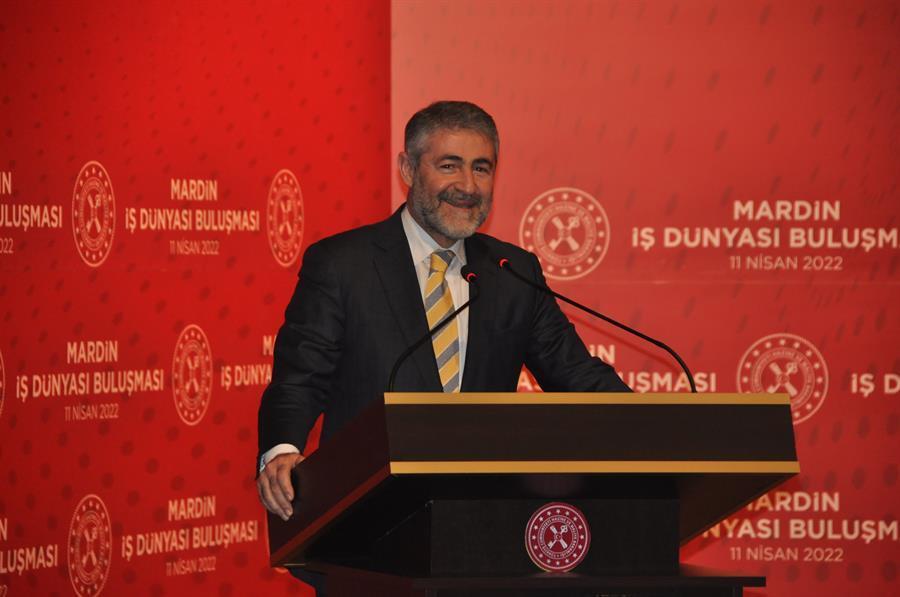
The recent surge in inflation rates is deemed by the Turkish government as temporary, Treasury and Finance Minister Nureddin Nebati said yesterday.
Speaking at a meeting with businesspeople in the southeastern province of Mardin, “We will reach a reasonable level of inflation at the end of the year,” he said.
The total volume in the Turkish Lira deposit accounts designed to protect savings against foreign exchange rate fluctuations has reached 728 billion liras ($49.5 billion) since Dec. 21, 2021, according to the minister’s remarks. The scheme was designed to support the national currency and curb the consumer price index rate, which hit a 20-year high of 61 percent last month.
Turkey managed to create 2.3 million jobs in a year despite the fallout from the COVID-19 pandemic, Nebati said, adding that the government aims at putting the country in the top 10 economies in the world.
The government has also cut value-added tax on staple products and inspected 40,000 businesses to prevent unfair pricing, said Nebati.
Nebati said the capacity utilization rate of Turkey’s manufacturing industry neared 80 percent, while exports leaped to a record $225 billion last year.
The Turkish government’s new approach, dubbed as Turkey Economy Model, prioritizes a current account surplus, increasing exports, GDP growth and expansion in employment, while keeping interest rates low. The government has said inflation will fall to single digits next year under its new economic path aimed at achieving a current account surplus.
The government last week introduced tax cuts on several products, including hygiene products and medical equipment. It followed a tax cut on basic goods and on electricity used for residential and agricultural irrigation purposes.
The Central Bank cut its policy rate by 500 basis points to 14 percent between September and December but has kept it unchanged at the last three meetings. The bank’s Monetary Policy Committee will convene on April 14 to announce its latest evaluations.
Commodity markets continued to follow a mixed course amid the ongoing geopolitical risks and hawkish remarks from officials of the world’s leading central banks.
Last week, a JP Morgan Chase strategist said commodities will continue their record streak, surging by as much as 40 percent amid rising inflation.
In energy markets, Brent crude benchmark, which is used as the price basis for international oils, retreated $2.22 to $100.56 per barrel in London. It rose $2.20 the previous session to $102.78 a barrel.
Benchmark U.S. crude fell $2.32 to $95.94 per barrel in electronic trading on the New York Mercantile Exchange. The contract rose $2.23 to $98.26 on April 8.